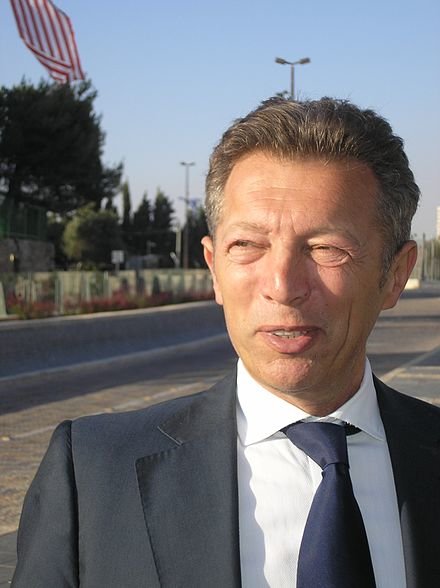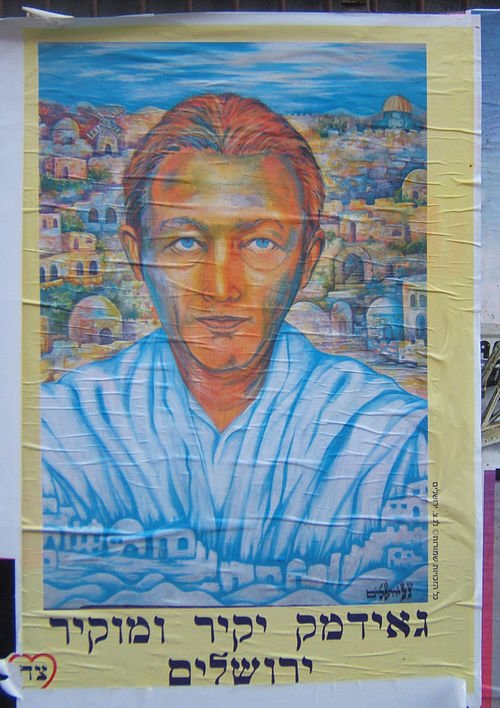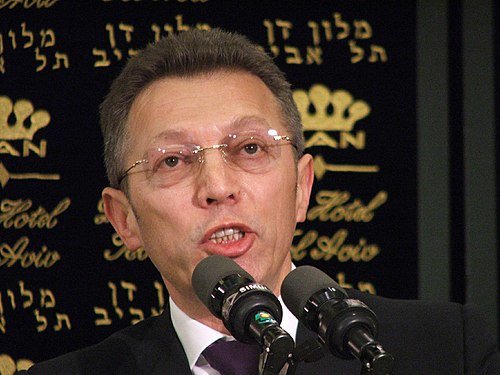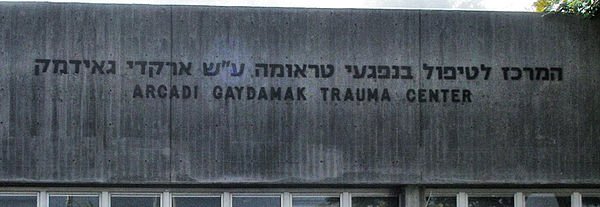Arkadi Alexandrovich Gaidamak: The Enigmatic Businessman and Arms Dealer
Arkadi Alexandrovich Gaidamak, also known by his Hebrew name Arieh Bar-Lev, was born on April 8, 1951. He is a Jewish businessman and arms dealer originally from Russia, holding citizenship in Israel, Canada, Russia, and France, along with a diplomatic passport from Angola. His estimated wealth in 2007 ranged from $700 million to $4 billion, but due to lawsuits, failed investments, and the global economic crisis of 2008, his fortune significantly diminished.
Gaidamak invested in various non-mobile businesses in France and Israel, including the world's largest phosphates company, Kazphosphate, gold mining, and metal processing facilities in Kazakhstan, and the Russian weekly newspaper "Moskovskie Novosti" for food marketing in Russia, as well as oil fields and minerals in Angola.
In Israel, his holdings included the Bikur Cholim Hospital in Jerusalem, the Hapoel Jerusalem sports club, 15% of Africa Israel Investments, and 99FM, a radio station in the Sharon region, which propelled him to become a well-known figure in Israel with a significant presence in the media during the early 21st century.
In October 2009, a French court accused him of illegally selling weapons to Angola. In his absence, the court sentenced him to six years in prison. Gaidamak appealed the decision and managed to reduce his sentence to three years. In November 2015, he voluntarily surrendered to French authorities and began serving his sentence. He was released from prison in March 2016 but had to wear electronic monitoring devices.
Biography
Gaidamak was born into a Jewish family in Moscow. His father worked as a hospital manager, and his mother worked in a food distribution company. On his 21st birthday in April 1972, he immigrated to Israel, initially residing in Kibbutz Beit Hashita. Later, he moved to Haifa and worked as a cashier for the company "Tzim." During one of his trips, he stayed in France.
According to Gaidamak, he arrived in France with nothing and worked as a laborer. Later, he established a home renovation company and, after gaining a sufficient command of French, worked as a translator from French to Russian. In 1976, he founded a document translation company in Paris, which worked with the French government and the trade delegation of the Soviet Union, helping him establish valuable connections.
It is not clear how he amassed his wealth, but in 1993, the Russian government acquired Angola's debt and appointed him as a signing authority on Angola's national bank account. In 1995, he significantly expanded his wealth by brokering arms deals between the Russian Ministry of Defense and the Czech government for Angola during a civil war.
These deals earned him a high standing with the Angolan military, resulting in him obtaining a diplomatic passport from Angola. Around the same time, the economic crisis in former Soviet states continued, and Gaidamak leveraged his connections with the President of Kazakhstan, Nursultan Nazarbayev, to acquire numerous factories.
In 1998, Gaidamak, along with former Israeli intelligence officers Avi Dagan (former head of the Mossad's operations branch) and Dani Yatom (former head of the Mossad), established the private security company "Geo-Strategic Consultancy," primarily operating in Angola and the Democratic Republic of Congo.
With this group and in collaboration with Lavon-Dan, a company owned by retired Israeli Major General Zeev Zarkin, they trained and armed militias loyal to the former President of Congo, Laurent-Désiré Kabila, in a deal worth over $50 million. The civil war during this time resulted in tens of thousands of casualties, but Kabila eventually triumphed, regaining control of the country.
In 2005, Gaidamak transitioned from relative obscurity to a prominent figure in Israeli society. This transformation began with his investments in sports (as detailed below) and continued with extensive communication and social activities. He frequently granted interviews to Israeli media outlets, almost always conducted in English.
In 2007, Gaidamak acquired approximately 60% of "Osiff Investments and Development" for 600 million shekels. Osiff held a stake in the Moshe Aviv Tower and other projects in Israel and abroad. Shortly after, he purchased controlling shares of the Gilad Investment House, which managed the Sprint investment portfolio, for over 180 million shekels. In June 2007, it was reported that he had acquired 51% of the Tiv Taam food retail chain, with plans to halt pork sales in the stores.
However, the deal was canceled amid legal disputes. During the same period, he also bought 65% of Amisragas Holdings, a company that operated gas stations and convenience stores in the United States. In October 2008, his company, Yisrass, purchased his shares in Osiff for 130 million shekels, diverting 120 million shekels to cover his debt to Mizrahi Tefahot Bank.
While in Israel, Gaidamak resided in Caesarea and had an apartment in the Mea Shearim neighborhood of Jerusalem.
In December 2008, it was reported that Gaidamak had left Israel and relocated to Moscow. In February 2009, he sought to reinstate his Russian citizenship, which he had lost upon immigrating to Israel.
Gaidamak fled from France after a warrant was issued for his arrest. He was wanted on charges of tax evasion and illegal arms trading with Angola, contrary to the international arms embargo imposed on the country. He was also suspected of fraud involving the use of forged documents.
Several years earlier, Gaidamak had been convicted in absentia in France of tax offenses. In 2007, Gaidamak acquired Wilifood, a food company, through a loan from the Wilfogers, the owners of Wilifood. However, after failing to meet the loan repayment terms, the company was returned to the Wilfogers, along with a profit of 100 million shekels.
On March 28, 2007, following a seven-year investigation, the Paris prosecutor's office announced the filing of serious charges against Gaidamak, accusing him of illegal arms sales in the Angola-Gate affair, totaling $791 million, and charges of corruption. According to the indictment, Gaidamak personally benefited $185 million from the affair.
Gaidamak was tried along with 41 other defendants in the case. The trial began in Paris on October 6, 2008, with Gaidamak absent from the proceedings. On October 27, 2009, Gaidamak was convicted and sentenced to six years in prison.
Gaidamak and the other defendants appealed the verdict, leading to his acquittal on most charges, including illegal arms trading. His sentence was reduced to three years, specifically for tax offenses.
Charles Pasqua, the former French Interior Minister who was convicted in the same case for collaborating with Gaidamak, attempted to avoid punishment by claiming that the entire French political establishment was aware of the dealings and even desired them.
Pasqua also tried to showcase Gaidamak's contribution to French society by using his connections in Russia to locate and free nine French pilots who were captured during the NATO bombing of Serbia. The Pasqua affair and the release of the pilots underscored the depth of Gaidamak's international connections.
Arkadi Alexandrovich Gaidamak's life story is one of intrigue, wealth, controversy, and international influence. His legacy is marked by his involvement in arms deals, business ventures, and his impact on Israeli society, making him a multifaceted and enigmatic figure in the world of business and international affairs.
- ארקדי גאידמקhe.wikipedia.org



